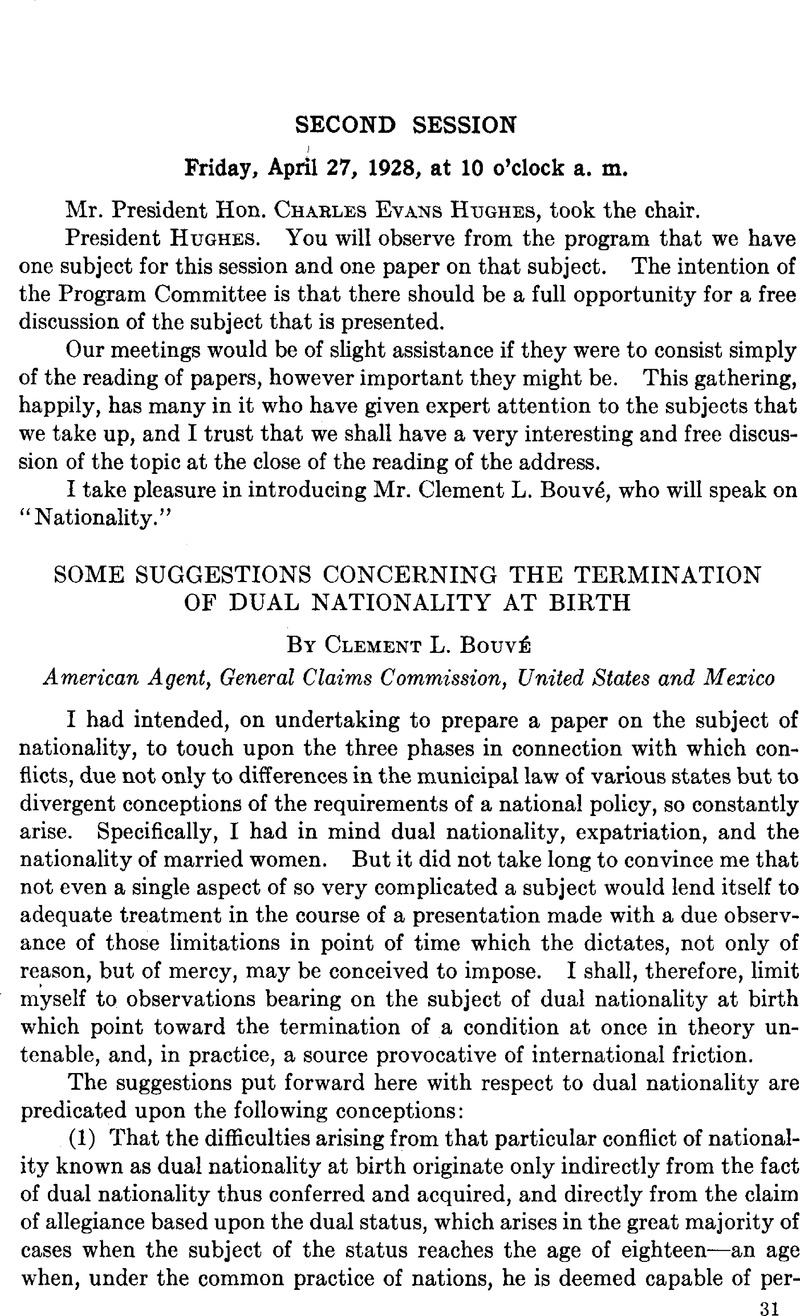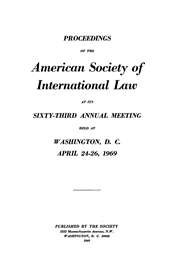No CrossRef data available.
Article contents
Some Suggestions Concerning the Termination of Dual Nationality at Birth
Published online by Cambridge University Press: 27 February 2017
Abstract

- Type
- Second Session
- Information
- Copyright
- Copyright © American Society of International Law 1928
References
1 International Law, 3d ed., Vol. I, p. 485.
2 Traité de droit international public, 1922. Vol. I, Part I, p. 844.
3 Publications of the League of Nations, 1926, V, Legal, V, 1. Committee of Experts for the Progressive Codification of International Law: Report on Nationality.
4 Yale Law Journal, Vol. XXXV, No. 8, June 1926, p. 955.
5 Westlake, 1910 ed., Part I, p. 220.
6 “In a broad sense,” says Professor Hyde, “international law limits the right of a state to impress its national character upon an individual, or to prevent that character from being lost or transferred.” (Hyde, International Law, ;etc., Vol. I, p. 611).
7 Fauchille, op. cit., p. 845.
8 As an instance, I call attention to Article III of the convention concluded at Paris July 23, 1879, between France and Switzerland, in order to regulate the situation of the children of Frenchmen who had become naturalized Swiss during the minority of their children. Under Article I such children were given the right to elect, in the course of their twenty-second year, between the two nationalities, French and Swiss. Under Article III “the young people upon whom this right of election has been conferred shall not be forced to undertake military service in France before the end of th6ir twenty-second year.”
9 Yale Law Journal, Vol. XXXV, No. 8 June 1926, p. 950.
10 Yale Law Journal, June, 1926, p. 950.
11 See Hall, Foreign Jurisdiction of the British Crown, p. 140.
12 In third states the right to him of each country is equal to that of the other. There is no such reason on either hand for yielding as proffers itself when a claim based upon origin is met by a like claim strengthened by the presence of the individual on the territory of one of the claiments. (Hall, Foreign Jurisdiction of the British Crown, p. 140).
13 “International law should not admit the possibility of persons without a country—without nationality. By virtue of the very fact that he is a member of society a man must have a country just as he must have a family. It is to the interest of civilized states that there exist no one without a country—no one designated by the term ‘heimathlos’. Heimathlosat constitutes a danger to society.” (Fauchille, op. cit., p. 843). And see passage from Oppenheim already cited.
14 9 Wheat. 738, 827.
15 169 U. S. 649, 703.
16 239 U. S. 299, 311.
17 Mackenzie v. Hare, supra, p. 311.
18 Ibid., p. 311.
19 “Suggestions Concerning an International Code on the Law of Nationality,”Yale Law Journal, June, 1926, Vol. XXXV, No. 8, pp. 939, 948.
20 Mackenzie v. Hare, supra, 239 U. S. 311.
21 Missouri v. Holland, 252 U. S. 416, 434.
22 Mr. Justice Holmes, in Missouri v. Holland, 252 U. S. 416, 433.




